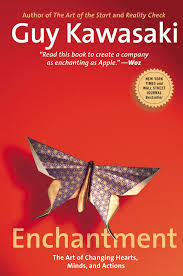enchantment
英 [ɪnˈtʃɑːnt.mənt]
美 [ɪnˈtʃænt.mənt]
- n. 魅力;魔法;着迷;妖术
星级词汇:

记忆方法
将“enchantment”分解为“en”和“charm”。想象“en”代表“增强”或“使进入”,而“charm”代表魅力或吸引力。结合起来,想象某种强大的吸引力将你“带入”了一个充满魔力的境地,从而记住“enchantment”意味着强烈的魅力或迷人的魅力。
以上内容由AI生成, 仅供参考和借鉴
英语词源
- enchantment (n.)
- c. 1300, "act of magic or witchcraft; use of magic; magic power," from Old French encantement "magical spell; song, concert, chorus," from enchanter "bewitch, charm," from Latin incantare "enchant, cast a (magic) spell upon," from in- "upon, into" (see in- (2)) + cantare "to sing" (see chant (v.)). Figurative sense of "allurement" is from 1670s. Compare Old English galdor "song," also "spell, enchantment," from galan "to sing," which also is the source of the second element in nightingale.
权威例句
- 1. The wilderness campsite had its own peculiar enchantment.
- 野营地有其自身独特的魅力。
- 2. It was a place of deep mystery and enchantment.
- 这是一个极其神秘和迷人的地方。
- 3. The beauty of the scene filled us with enchantment.
- 风景的秀丽令我们陶醉.
- 4. The countryside lay as under some dread enchantment.
- 乡村好像躺在某种可怖的魔法之下.
- 5. Blue and green dragonflies, poised in the air, added to the enchantment.
- 蓝蜻蜒,绿蜻蜒停在空中, 一动也不动,这更增加了这里的神秘气氛.